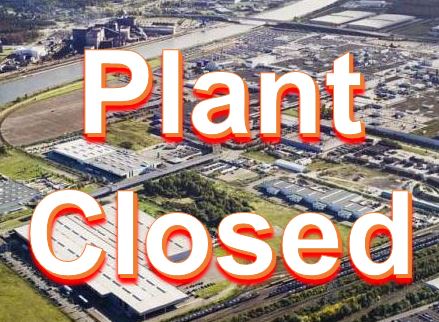The Ford Motor Company closed it plant in Genk, Belgium on Thursday, which had manufactured 14 million vehicles and provided thousands of jobs for over half a century.
The decision to close the factory, which employed approximately 4,000 workers, was made at the end of 2012. It was decided that the production of its Galaxy, S-Max and Mondeo models would be relocated to Valencia in Spain.
Automotive News Europe quoted Rudi Beys, a 60-year old worker who said on his way to his final shift:
“It seems so unreal. I think I’ll only notice after the holidays. It’s winter time, you’re at home and have no idea what to do. That’s when it will hit.”
Mr. Beys added that sixty is too young to retire.
A University of Hasselt study estimated that the plant’s closure will result in the loss of an additional 11,800 indirect jobs in the region.
The last vehicle to be manufactured in Genk was a white Galaxy van. It will be donated to charity and has the signatures of all the factory workers emblazoned on it.
Ford’s Genk plant employed more than 4,000 people.
A skeleton staff of a few hundred will be kept on to help dismantle the assembly lines.
Opel (General Motors) closed its Antwerp plant in 2010. After the closure of the Ford factory, Belgium has just two vehicle assembly plants left – Volvo in Ghent and Audi in Brussels.
Bad news for the rust belt
Genk is in the Belgian-Dutch-German border, an area that has become a ‘rust belt’. Two car factories (including Ford) have closed in the region this month as automakers opt for cheaper labor costs. Two weeks ago, Opel closed its factory at Bochum across the border in Germany.
The region, which has been trying unsuccessfully to reinvent itself, may be encouraged by a €350 billion European Union investment plan announced earlier this week. The plan aims to get investors to participate in projects across the continent.

